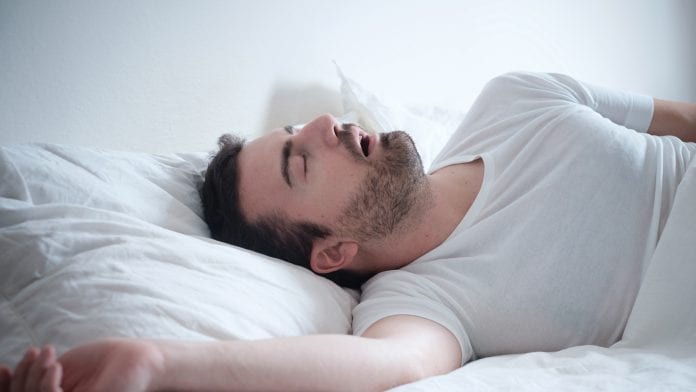
Vice-president of medical affairs at ResMed, discusses the high burden of sleep apnoea in Europe and how best the health community can respond.
Approximately 175 million Europeans have obstructive sleep apnoea, a chronic condition characterised by regular pauses in breathing during sleep and associated with an increased risk of mortality. This is according to a recent study by connected health company ResMed, who in earlier work put the total number of people with sleep apnoea worldwide at a staggering 936 million – almost ten times higher than that previously estimated by the World Health Organization.
Health Europa spoke to ResMed’s Dr Adam Benjafield, vice-president of medical affairs, to learn more about this vastly underreported health problem.
An earlier estimate by the WHO put the global prevalence of sleep apnoea at 100 million – what is behind the new estimate of more than 936 million?
ResMed convened a group of world-leading researchers in the sleep apnoea space to analyse published prevalence studies from 16 countries. When we combined those studies with population data from the United Nations, a more current prevalence figure quickly emerged. The overall human population has only risen 15% since 2007.
We believe the reason the known prevalence of sleep apnoea has increased nearly tenfold since then is due to a combination of factors, including technological advancements that enable better detection of sleep apnoea, a higher prevalence of obesity and other conditions linked to the disease as well as changes to the scoring rules for diagnosing sleep apnoea.
175 million people in Europe are estimated to have sleep apnoea. What social/economic etc. impact is this likely to be having?
While there are no studies estimating an exact figure, I can say with confidence the impact is significant in terms of quality of life and long-term health risks for those living with untreated sleep apnoea, as well as the toll on companies and Europe’s healthcare systems.
In 2015, undiagnosed sleep apnoea cost the United States nearly $150bn (~€130bn), as a result of related lost productivity, motor vehicle accidents and workplace accidents, as well as healthcare costs and medications prescribed to treat conditions associated with these untreated apnoeas.1 Europe has threefold the amount of people living with sleep apnoea as the United States, and it’s reasonable to imagine that the impact is significantly higher as well.
How would you like to see Europe’s doctors and other healthcare professionals respond to the findings?
Now is the time for action. The medical community in Europe, and indeed worldwide, should be vigilant in screening patients at high risk for sleep apnoea, such as those with drug-resistant hypertension, obesity, chronic heart failure or Type 2 diabetes – as well as those with noted snoring, breath stoppages while sleeping or chronic daytime sleepiness after seemingly getting a full night’s rest. The good news is: we know so much more today about sleep apnoea’s symptoms and comorbidities. We just need to ask the right questions and encourage likely patients to get tested.
What should patients themselves be aware of when it comes to identifying sleep apnoea?
My leading advice is: don’t ignore a symptom or accept it as normal. It’s not normal to always feel tired after six, seven, eight hours of sleep. Your snoring could be nothing – or it could be a life-saving indication of untreated apnoea. Snoring detected by a bed partner is still the number-one indicator leading to diagnosis of sleep apnoea, and it affects the bed partner’s quality of sleep as well.
This disease is treatable, and leading treatments are quieter, more comfortable and easier to use than ever before. Avoiding a test or treatment, meanwhile, could be detrimental to your quality of life and potentially cause or exacerbate other life-threatening conditions. If you show a symptom, talk to your doctor.
How is ResMed helping patients to manage sleep apnoea?
Positive airway pressure (PAP) therapy is the medical community’s gold standard for treating sleep apnoea. ResMed provides a series of PAP devices that deliver a stream of air into a user’s upper airway, keeping it open to allow for uninterrupted breathing. ResMed PAP devices also share nightly usage data with users and their physicians via a secure cloud network, enabling better patient engagement and faster medical assistance when needed. More than 87% of PAP users are adherent when remotely and self-monitored using these secure cloud-based tools.2
References
- aasm.org/resources/pdf/sleep-apnea-economic-crisis.pdf
- newsroom.resmed.com/news-releases?item=122760
Adam Benjafield
Vice-President, Medical Affairs
ResMed
Tweet @ResMed
www.resmed.com
This article will appear in issue 7 of Health Europa Quarterly, which will be published in November 2018.









